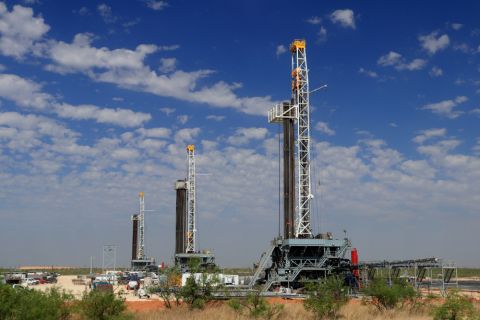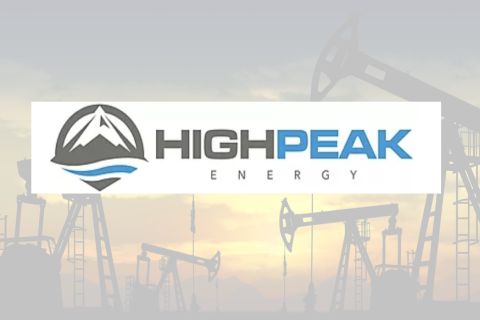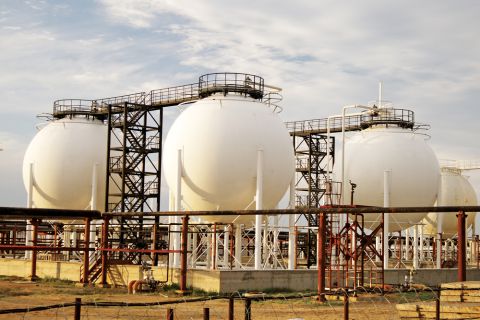Over the last five years, there has been a major paradigm shift in the source of innovation.
Although the supermajors of the oil and gas industry still contend for the top spot in industry innovation (as demonstrated by their success in exploiting ever deeper, more remote basins), some of the larger E&Ps are resisting the call to mobilize their working environment. These companies are saying no to connectivity, restricting the use of smartphones and tablets, and overlooking the applications and convenience their employees have come to enjoy and even depend on in everyday life.
Why is this so? Old habits die hard. Large companies look at mobile and pervasive computing from the IT mindset – control and compartmentalize – ahead of the benefits the organization will gain by enabling its teams through the mobile medium. However, with the employee time savings and relative affordability that the mobile medium has to offer E&P companies, smaller operators are taking note. Many of the small- to medium-sized independents have started to look to consumer electronics and cost-effective apps to work smarter, not necessarily harder. Thanks to mobile technology, independent operators are able to scale every last man hour – and squeeze every last drop of oil – from their operations.
David vs. Goliath

The GreaseBook app allows operators to use consumer technology to streamline their wellsite reporting. (Image courtesy of GreaseBook)
For years, the standard protocol of large production companies has been to monitor and execute all deepwater drilling activities via sophisticated satellite networks. Most wells over a certain capex are fitted with real-time optimization tools and sensors. However, for many smaller industry players, the digital oil field has always been a mirage that lay just out of reach.
Most operations managers and field engineers feel they are already spread too thin. Many field data collection systems require a high level of expertise to design, deploy, and operate. These systems also require general IT, control theory, and petroleum engineering skill sets to properly manage. While continually updating risk assessments, quantifying uncertainties, and integrating data across autocratic domain knowledge silos might all be part of an average day at one of the majors, for the smaller players, the cost and energy required does not justify the means.
While large independents and supermajors have entrenched themselves in advanced analytics software, data repositories, and massive IT departments to oversee it all, smartphones and tablet computers have been piggybacking their way into smaller companies. How? In the pockets and purses of the employees who work there.
The pen and paper live on
It may surprise most people to learn that in a large majority of independent operating companies, the pen and paper method still remains the dominant form of field data collection. However, this is quickly changing. In most operations, field personnel are contracted to oversee and troubleshoot an operator’s leases. These field personnel usually fill out industry-standard paper gauge sheets. All oil, gas, and water production measurements are handwritten, and (if the operator is lucky) pumpers include any special commentary before mailing or faxing these figures to headquarters.
Although technologies like remote operations and SCADA have sought to address productivity and efficiency issues, many independent operators are of the mindset that a marginal well is going to produce what it is going to produce regardless of whether its production is monitored or not. Even in the case of high-flow wells, most operators require that their pumpers visit these sites several times a day, trumping some of the potential benefits a wireless monitoring device may tout.
When it comes to smaller operators, telemetry providers promoting real-time information may have missed the mark. Many operators are not concerned about immediate information. What they truly desire is a way to streamline the redundancy, reporting, and productivity issues that come with field data collection. What is more, they want a way to make sense of it all. And, with many pumpers fast approaching retirement age, operators are now searching for effective ways to transfer the intimate knowledge they have gained about their production properties to the next generation of engineers, managers, and field workers.
Some forward-looking E&P companies are addressing this through consumer electronics. Because of the shared repositories of information on which these mobile devices subsist, intimate knowledge of a company’s oil and gas assets is not stored away deep in a file cabinet or in some “autocratic domain silo” but is easily accessed via the cloud.
Rather than focus on the management and operations of onsite data servers, a majority (if not all) of the smart device software apps are hosted on the cloud. For the smaller operator, this means that employees can focus on what they are best at: overseeing oil and gas production, not managing complicated IT structure. Every piece of historical production information is stored offsite at a cloud storage provider, from which a relief pumper or a newly hired engineer can easily access needed information for review.
Smaller operators also are becoming more cognizant of the free apps on the iPad and iPhone that are the perfect complements to their business. Many of these apps only take a few minutes to set up but have the potential to yield days in productivity increases from operations managers, field engineers, and pumpers every year. For example, pumpers generally have a task list of things they need to do on a weekly, monthly, and yearly basis to keep their leases running in top form. By forming pumper message groups in Apple’s Reminder app (which comes standard on every iPad and iPhone), oil and gas operators have an effective way to deliver daily, weekly, and monthly to-do lists (e.g. drop soap sticks, pump maintenance, chemical schedules, gas chart calibration, etc.).
Engineers who oversee the operations of small producers are employing free file sharing services such as Dropbox to store and deploy important documents like well completion reports and workover information. Once files are uploaded into Dropbox, employees are no longer tethered to their desktop computers. A field engineer can view a well history file from his tablet or smartphone in the field and share this same file with his team of field personnel.
Pumpers also have been quick to realize that by using the camera function on their smart devices they are able to save an employer thousands of dollars each year. By taking photos or video of problems in the field and posting them to messaging applications, veteran foremen and engineers can visually engage with their production assets. Where once issues could only be resolved through verbal descriptions over the telephone, companies are now able to visually troubleshoot problems from the office, thus avoiding costly onsite service calls.
A new breed of specialized apps has begun to crop up in the oil and gas industry. GreaseBook, an iPad application for operators and their pumpers, has eliminated the need for the traditional paper gauge sheet workflow. The company designed the app to work in oil-producing areas with zero mobile connectivity, and the app touts zero setup time and no contracts. The company has set out to improve the way pumpers record and interact with the vital production information they collect in the field, and the app can potentially eliminate 99% of all in-house, field-related administrative duties.
Operators are happy to outsource many of their core computing and operations processes to third-party companies because of the convenience and amount of time that is saved. What is more, company employees actually want to use these smart devices, which means management does not have to endure the typical push-back of new initiatives.
The platforms on which these smartphones and tablets run are nothing to scoff at. Take Apple, which according to market value surpassed ExxonMobil as the world’s most valuable company in 2011. The apps that run on these smart devices are backed by cloud computing heavy hitters like Microsoft and RackSpace Cloud systems and are connected by mobile communications giants like Verizon and AT&T. Essentially, operators feel more comfortable leaving the responsibilities of their core computing and operations processes to third-party consumer companies, not only because of the convenience and amount of time they save but also because these companies dedicate 100% of their resources to providing and perfecting these services.
Democratization of the oil field
Despite the success operators are having with the implementation of these easy-to-use, cost-effective apps, many of the larger operating companies are resisting the call to mobilize their working environment. The cost of not going mobile comes in many forms. It comes in the form of not attracting the strongest candidates to replace the industry’s aging work force. And it comes in the form of not making the best decisions due to limited information. These petite E&P companies may soon find themselves the envy of their larger, more “sophisticated” brethren. Something happens when people start to use smart technology. Their focus shifts from “how things get done” to “how things need to get done,” and for owners and managers of E&P companies, this is a welcome transformation. For more information, visit the company's website at greasebook.com.
Recommended Reading
TPH: Lower 48 to Shed Rigs Through 3Q Before Gas Plays Rebound
2024-03-13 - TPH&Co. analysis shows the Permian Basin will lose rigs near term, but as activity in gassy plays ticks up later this year, the Permian may be headed towards muted activity into 2025.
For Sale, Again: Oily Northern Midland’s HighPeak Energy
2024-03-08 - The E&P is looking to hitch a ride on heated, renewed Permian Basin M&A.
E&P Highlights: Feb. 26, 2024
2024-02-26 - Here’s a roundup of the latest E&P headlines, including interest in some projects changing hands and new contract awards.
Gibson, SOGDC to Develop Oil, Gas Facilities at Industrial Park in Malaysia
2024-02-14 - Sabah Oil & Gas Development Corp. says its collaboration with Gibson Shipbrokers will unlock energy availability for domestic and international markets.
E&P Highlights: Feb. 16, 2024
2024-02-19 - From the mobile offshore production unit arriving at the Nong Yao Field offshore Thailand to approval for the Castorone vessel to resume operations, below is a compilation of the latest headlines in the E&P space.





